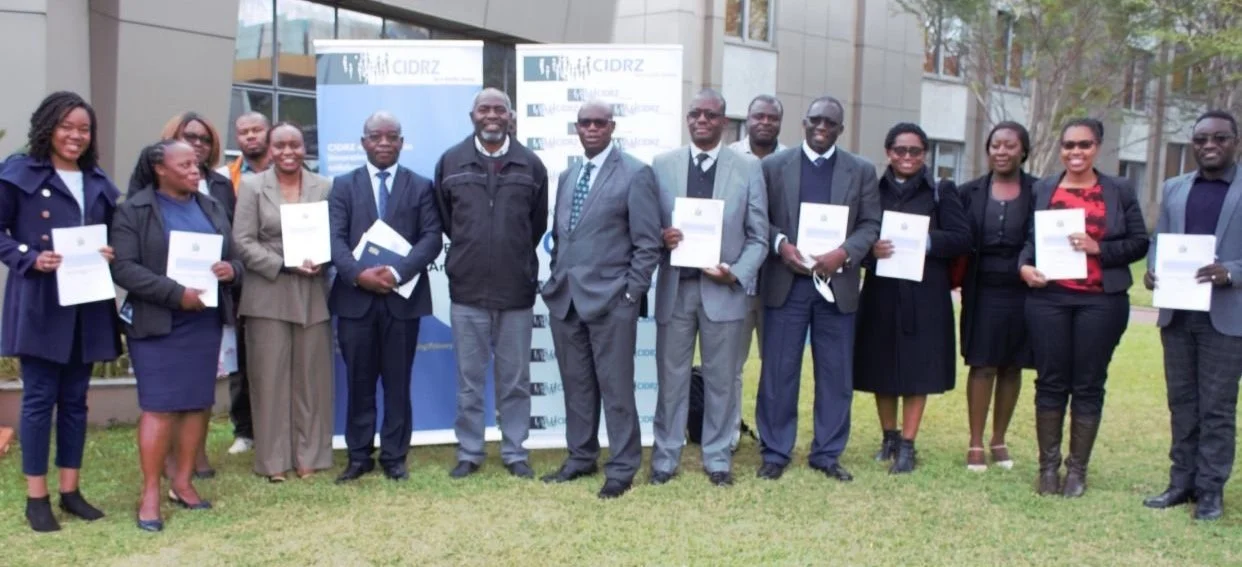Zambia NCDI Poverty Commission Launches Report and Announces PEN-Plus Initiation
The Zambia Ministry of Health (MOH) and the Centre for Infectious Disease Research in Zambia (CIDRZ) officially launched the Zambia NCDI Poverty Commission Report on 29 June 2022 in Lusaka and announced that they will initiate PEN-Plus services at two district hospitals in the coming months.
The Commission, which was established in 2018, was co-chaired by the MOH and CIDRZ and comprised of more than 20 stakeholders from the MOH, civil society, academic institutions, and implementing partners.
Members of the Zambia NCDI Poverty Commission celebrated the launch of the Commission report.
“I am happy to announce that the Zambian National NCDI Poverty Commission has finally managed to produce the NCDI Poverty Commission Report being launched here today,” CIDRZ CEO Dr. Sikazwe declared. She said the Commission had conducted a rigorous priority-setting process to identify 54 conditions that are critically important for Zambia and had “recommended health system interventions and policies that can support the ongoing fight against NCDs and injuries for all Zambians.”
Dr. Sikazwe also took the occasion to announce that policies and interventions to address several of the severe conditions prioritized by the Commission will soon be implemented, as Zambia prepares to launch PEN-Plus clinics at two district hospitals in the coming months.
“I am also glad to announce that based on the work of the NCDI commission, CIDRZ applied for and was awarded funding to implement the Package of Essential NCD Interventions Plus (PEN-Plus) project, which is an integrated delivery strategy for chronic care of severe non-communicable diseases at intermediate-level facilities such as district hospitals,” Dr Sikazwe stated. “The PEN-Plus Project builds on the World Health Organization’s Package of Essential NCD Interventions for common NCDs.”
MOH permanent Secretary for Technical Serices, Prof. Lackson Kasonka (center), WHO country representative Dr. Nathan Nsubuga Bakyaita (left), and CIDRZ CEO Dr. Izukanji Sikazwe (right) at the Zambia NCDI Poverty Commission Report launch event.
MOH Permanent Secretary for Technical Services Prof. Lackson Kasonka and WHO Country Representative Dr. Nathan Nsubuga Bakyaita also spoke at the event.
“Poverty is a contributing factor to the increase in the number of NCDIs and economic stagnation in the countryside,” Prof. Kasonka said. “Reducing the burden of NCDIs is therefore essential to fighting extreme poverty, reducing inequality, and improving health and well-being.” He added that the report’s recommendations would support measures to evaluate progress and provide accountability to ensure that NCDI services were delivered to poor communities.
“A report like this one that we are launching today,” WHO Representative Dr. Bakyaita stated, “is a great advocacy tool for resource mobilization, not only for financial resources but for skilled human resources.”


